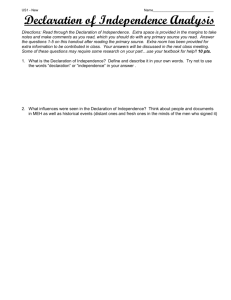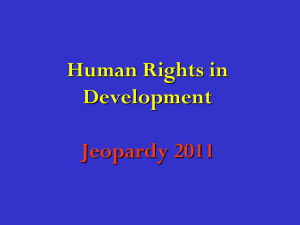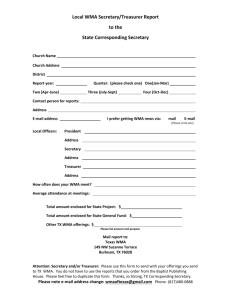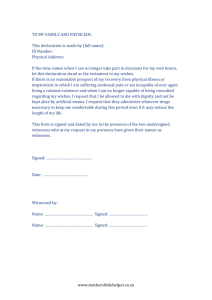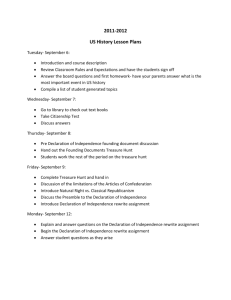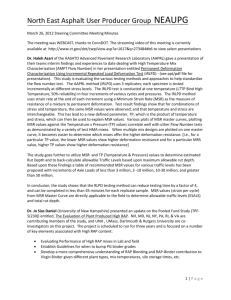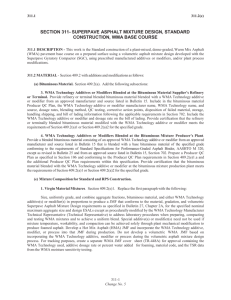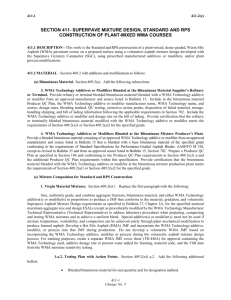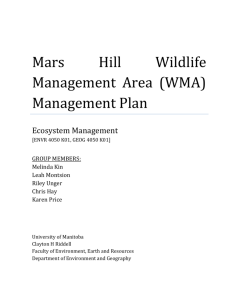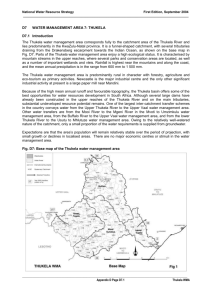Infomation regarding revised Declaration of Helsinki (2013)
advertisement
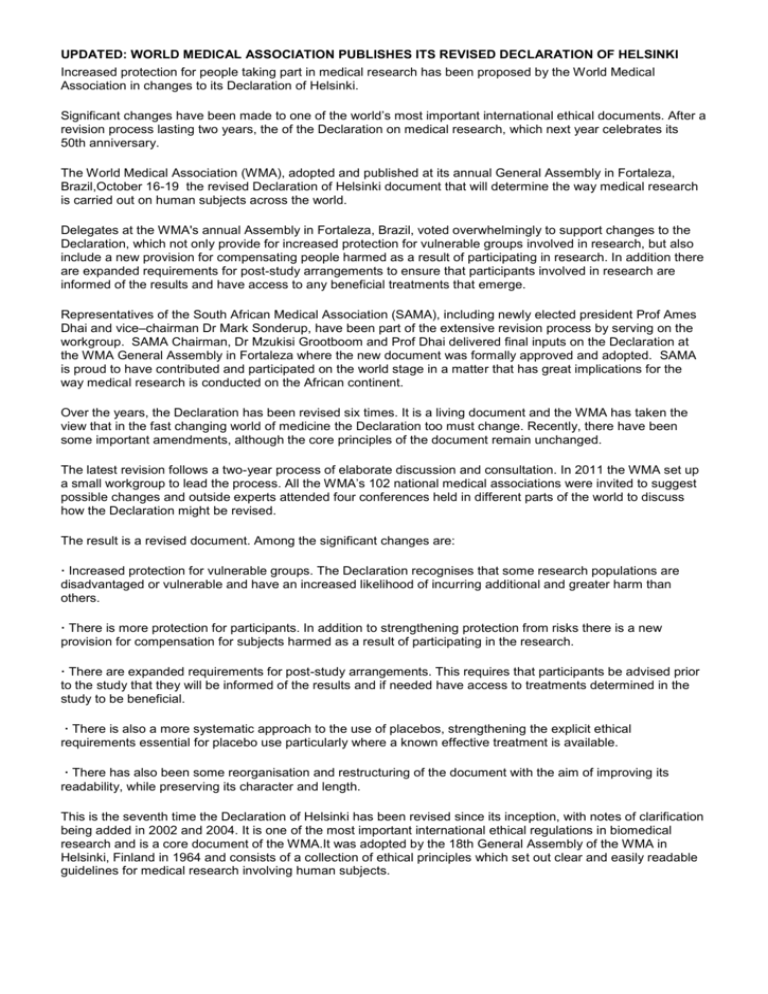
UPDATED: WORLD MEDICAL ASSOCIATION PUBLISHES ITS REVISED DECLARATION OF HELSINKI Increased protection for people taking part in medical research has been proposed by the World Medical Association in changes to its Declaration of Helsinki. Significant changes have been made to one of the world’s most important international ethical documents. After a revision process lasting two years, the of the Declaration on medical research, which next year celebrates its 50th anniversary. The World Medical Association (WMA), adopted and published at its annual General Assembly in Fortaleza, Brazil,October 16-19 the revised Declaration of Helsinki document that will determine the way medical research is carried out on human subjects across the world. Delegates at the WMA's annual Assembly in Fortaleza, Brazil, voted overwhelmingly to support changes to the Declaration, which not only provide for increased protection for vulnerable groups involved in research, but also include a new provision for compensating people harmed as a result of participating in research. In addition there are expanded requirements for post-study arrangements to ensure that participants involved in research are informed of the results and have access to any beneficial treatments that emerge. Representatives of the South African Medical Association (SAMA), including newly elected president Prof Ames Dhai and vice–chairman Dr Mark Sonderup, have been part of the extensive revision process by serving on the workgroup. SAMA Chairman, Dr Mzukisi Grootboom and Prof Dhai delivered final inputs on the Declaration at the WMA General Assembly in Fortaleza where the new document was formally approved and adopted. SAMA is proud to have contributed and participated on the world stage in a matter that has great implications for the way medical research is conducted on the African continent. Over the years, the Declaration has been revised six times. It is a living document and the WMA has taken the view that in the fast changing world of medicine the Declaration too must change. Recently, there have been some important amendments, although the core principles of the document remain unchanged. The latest revision follows a two-year process of elaborate discussion and consultation. In 2011 the WMA set up a small workgroup to lead the process. All the WMA’s 102 national medical associations were invited to suggest possible changes and outside experts attended four conferences held in different parts of the world to discuss how the Declaration might be revised. The result is a revised document. Among the significant changes are: · Increased protection for vulnerable groups. The Declaration recognises that some research populations are disadvantaged or vulnerable and have an increased likelihood of incurring additional and greater harm than others. · There is more protection for participants. In addition to strengthening protection from risks there is a new provision for compensation for subjects harmed as a result of participating in the research. · There are expanded requirements for post-study arrangements. This requires that participants be advised prior to the study that they will be informed of the results and if needed have access to treatments determined in the study to be beneficial. · There is also a more systematic approach to the use of placebos, strengthening the explicit ethical requirements essential for placebo use particularly where a known effective treatment is available. · There has also been some reorganisation and restructuring of the document with the aim of improving its readability, while preserving its character and length. This is the seventh time the Declaration of Helsinki has been revised since its inception, with notes of clarification being added in 2002 and 2004. It is one of the most important international ethical regulations in biomedical research and is a core document of the WMA.It was adopted by the 18th General Assembly of the WMA in Helsinki, Finland in 1964 and consists of a collection of ethical principles which set out clear and easily readable guidelines for medical research involving human subjects.




